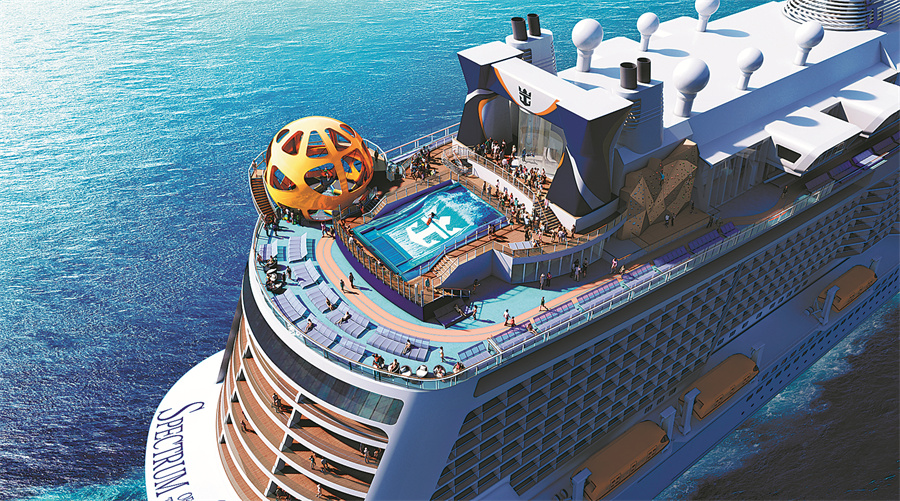Cruise ship industry poised for new golden era
With launch of domestic liner and return of international operators, the sector is primed for strong growth


MSC Cruises is not alone. On April 27, the world's largest global cruise line operator, Royal Caribbean International, will sail Spectrum of the Seas from Shanghai.
Up until May 2026, Royal Caribbean will offer more than 120 cruises, with itineraries ranging from four to seven nights, and destinations in Japan including Tokyo, Osaka, Kobe, Fukuoka, Kumamoto, Nagasaki, Kagoshima and Okinawa.
"Since we opened sales on June 29, 2023, bookings for cruise ship travel have been surging, and family suite options are already sold out," said Liu Zinan, senior vice-president of the Royal Caribbean Group.
Liu anticipates that "booking volume in the second quarter of this year will be four times that of the pre-pandemic period, with a potential nine-fold increase compared to historical levels in the third and fourth quarters."
Royal Caribbean was one of the first international cruise companies to enter the Chinese market and has cultivated it for 15 years, said Liu, who is also chairman of the Royal Caribbean Cruises in Asia.
"Royal Caribbean has played a catalyst role in fostering a golden decade of cruise development over the past decade, witnessing the remarkable growth of the Chinese cruise industry during its golden age, with annual growth rates exceeding 50 percent," Liu said.
In recent years, the development direction of China's cruise industry has become more diversified, he said.
"After three years of reflection, consumers' demand for cruise products is changing, which also brings us new market opportunities. For instance, there is an emerging trend toward younger demographics and an increasing desire for diverse onboard entertainment experiences, which require guest services to become more diversified for different age groups," Liu said.
Huang Ruiling, president of MSC Cruises China, said: "We have upgraded many dining options and added some Chinese cultural elements to suit Chinese tastes."
Huang described MSC Bellissima as a vessel with Chinese imprints. "From the ship's repairs and maintenance, procurement of raw materials and supplies, to staff recruitment and operations, this is a cruise ship that has been upgraded specially for the Chinese market and the preferences of Chinese consumers," Huang said.
After home port operations resume in China, all the produce for Chinese cuisine served onboard will be procured locally, she said.
In order to better serve its Chinese guests, up to 25 percent, or 400 of MSC Bellissima's crew members, are fluent in Chinese.


















